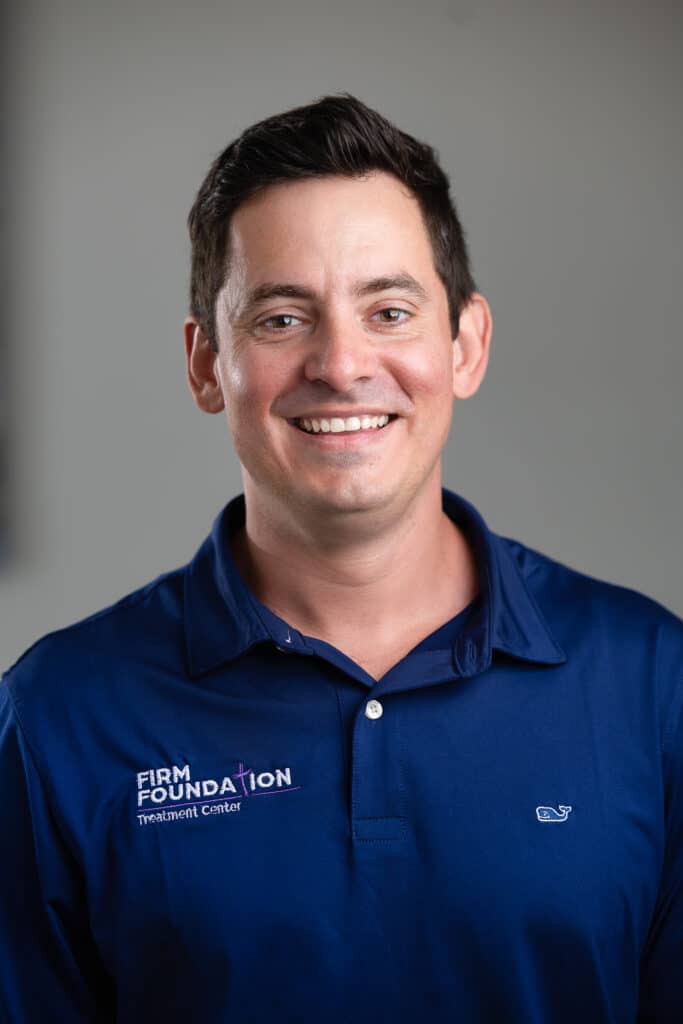BCBS DRUG REHAB IN GEORGIA
Table of Contents

Medical Reviewer
Brian Aicher, LCSW
BCBS Drug Rehab Center in Georgia: A Fresh Take on Faith and Healing
Financial worries often tiptoe hand-in-hand with substance use struggles. Some may assume rehab is too costly or that the help they desperately need would somehow elude them. At our men’s only, faith-based rehab, we don’t just acknowledge spirituality but actively weave it together with science-backed therapies—and all under the protective umbrella of BCBS drug rehab coverage.
Firm Foundation: Where Faith Meets Evidence
Firm Foundation Treatment Center in Woodstock might surprise anyone expecting purely spiritual approach to rehab. It is, in fact, a Christ-centered addiction recovery and mental health facility that offers the best of both worlds: Biblical teachings combined with scientifically tested therapies. The staff at Firm Foundation believe that healing is most robust when it addresses spirit, mind, and body in equal measure.
Here, a morning session might include prayer or scriptural reflection, followed by a thorough one-on-one trauma counseling appointment in the afternoon. Every therapy used—CBT, DBT, EMDR (for trauma), Motivational Interviewing, and Relapse Prevention—remains rooted in recognized research and best practices.
Trauma-Informed Care: A Gentle Approach
One of the center’s guiding principles is trauma-informed care. This is a philosophy acknowledging how past traumas shape a person’s present response to treatment. By fostering an environment of safety, openness, and non-judgmental understanding, Firm Foundation helps men engage more fully in recovery. Here, the staff offer a reassuring space to rewrite your story.
A Day in the Life: Routines That Reinforce Healing
Partial Hospitalization Program (PHP) or Intensive Outpatient Program (IOP)—pick your level of care, and you’ll sense a purposeful schedule guiding individuals along their recovery journeys.
- Morning Reflection (9 a.m.)
The day begins with a communal prayer or a period of silent thought. Some men practice meditation in lieu of prayer. - Process Group
A therapist might lead a conversation about deep-seated emotions—regret, fear, shame—and how they link to childhood or major life events. Sharing openly in a supportive group can be transformative. - Psychoeducation Class
Men learn how addiction impacts the brain and how triggers spark cravings. - Afternoon Reflection (PHP)
In PHP (9 a.m. to 3 p.m.), clients may have an afternoon session devoted to relapse prevention or trauma work, such as EMDR. Reflection groups help them absorb insights and end the day on a hopeful note. - IOP Variations
IOP runs from 9 a.m. to noon, offering a half-day schedule. This is ideal for men transitioning to work or family obligations. Structure remains essential, but it’s flexible enough for real-life demands.
Everything follows evidence-based therapies. Biblical principles might be interwoven into each session: a brief prayer to begin a group session, a pastor’s encouragement, or a moment of forgiveness for those grappling with guilt. It’s a seamless blend that never feels forced.
Paying for Treatment: BCBS Drug Rehab Coverage
A major hurdle for many is the financial aspect. The panic linked to addiction can be debilitating on its own—layer on coverage concerns, and it’s no wonder people hesitate to seek help. Fortunately, Firm Foundation provides practical solutions alongside its compassionate ethos.
BCBS Drug Rehab Benefits
Blue Cross Blue Shield (BCBS) drug rehab coverage can drastically lower out-of-pocket expenses. Many BCBS plans include benefits for inpatient rehab, partial hospitalization (PHP), intensive outpatient (IOP), and medication-assisted treatment. Each plan has differences, with slightly differing deductibles and coverage percentages. Since Firm Foundation commonly accepts BCBS, the admissions coordinator can help verify your benefits—so you aren’t left guessing.
Nonprofit Support for Those in Need
Insurance, while beneficial, doesn’t always cover everything. Maybe your BCBS plan has limits, or perhaps you lack insurance altogether. Firm Foundation bridges these gaps through the Firm Foundation Treatment Fund, a charitable initiative aiding men dedicated to recovery. Some receive scholarships for housing or partial coverage for program fees. It’s a shining example of community support—making sure finances don’t stand in the way of a healthier future.
Reach Out to Firm Foundation Today to Learn More
Firm Foundation Treatment Center in Woodstock, Georgia, is a men’s-only, faith-focused drug rehab that accepts BCBS insurance. We offer evidence-based programs, including CBT, DBT, EMDR, and more. If you’re ready to begin healing—physically, mentally, and spiritually—reach out to our compassionate team today at Firm Foundation. We’re here to help you build your own firm foundation for lifelong recovery.
What Therapies Does BCBS Cover?
Yes. BCBS supports both substance use and mental health services. If you come in with a dual diagnosis—such as opioid use disorder and PTSD—you won’t have to worry about finding separate plans. BCBS sees integrated care as vital for lasting recovery, so therapy for anxiety, depression, or other mental health issues is commonly included.
Does BCBS Cover Addiction and Mental Health?
Yes. BCBS supports both substance use and mental health services. If you come in with a dual diagnosis—such as opioid use disorder and PTSD—you won’t have to worry about finding separate plans. BCBS sees integrated care as vital for lasting recovery, so therapy for anxiety, depression, or other mental health issues is commonly included.
What Is BCBS’s Coverage for Dual Diagnosis?
When an individual has both a substance use disorder and a mental health issue, it’s called a dual diagnosis. Coverage under BCBS drug rehab benefits typically applies to both conditions at the same time. At Firm Foundation, counselors craft a personalized plan addressing every layer of the problem, from trauma to substance dependency. Because this integrated approach is the recognized standard of care, BCBS tends to cover services for co-occurring disorders without requiring special clauses.

